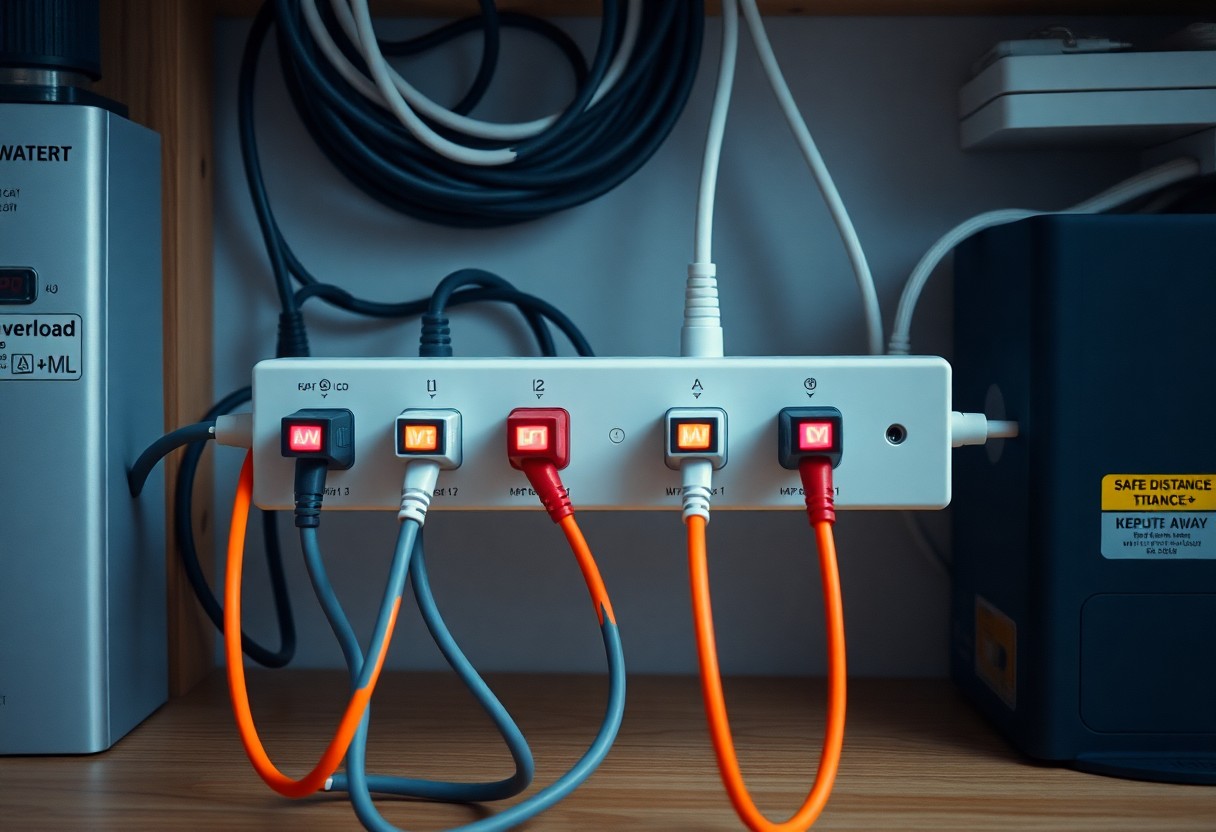With extension cords being a common tool for many households and workplaces, it is crucial for you to use them safely to prevent accidents and hazards. Extension cords can offer convenience, but if misused, they can lead to serious issues such as electrical fires or equipment damage. Here are some important guidelines for using extension cords in a safe manner.
First and foremost, you should choose the right extension cord for your needs. Ensure that the cord is rated for the required voltage and wattage of the devices you plan to connect. The amp rating, which can usually be found on the cord’s packaging or attached label, must match or exceed the total amperage of your devices. If you regularly use high-powered equipment, opt for a heavy-duty extension cord to handle the increased load.
When setting up your extension cord, it is vital to inspect it for any visible damage. Look for fraying, exposed wires, or any signs of wear. Using a damaged cord can put you and your property at risk. Also, ensure that your extension cord is equipped with a grounded plug, which provides an additional layer of safety for your electrical devices.
When using an extension cord, avoid overloading it. This means that you should not plug in more devices than the cord is rated to handle. Each piece of equipment has its own power requirements, and exceeding those can lead to overheating and potential fire hazards. Always be mindful of the combined wattage of the devices you intend to connect, and when in doubt, consult the specifications of each device.
Placement is another critical aspect of safe extension cord usage. Position the cord where it won’t be a tripping hazard or exposed to water and other sources of moisture. Avoid running extension cords across high-traffic areas, as this increases the risk of someone tripping over it. Instead, use a cord cover for additional protection if necessary.
For outdoor activities, ensure that you are using a weather-resistant extension cord. Outdoor-rated cords have additional insulation to protect against moisture, UV rays, and temperature fluctuations. Make sure that the connections are also sheltered from the elements to minimize the risk of electrical shock.
It’s important to unplug your extension cord when it’s not in use. Leaving it plugged in can lead to a build-up of heat, which poses a fire risk. Additionally, storing the extension cord properly can prolong its life and reduce the chances of damage. Coil it neatly without kinks, and avoid wrapping it too tightly, which could compromise its wires over time.
As a final point, by following these guidelines, you can ensure the safe use of extension cords in your home or workplace. Being proactive about safety will not only protect you but also help safeguard your family and property from potential electrical mishaps.
